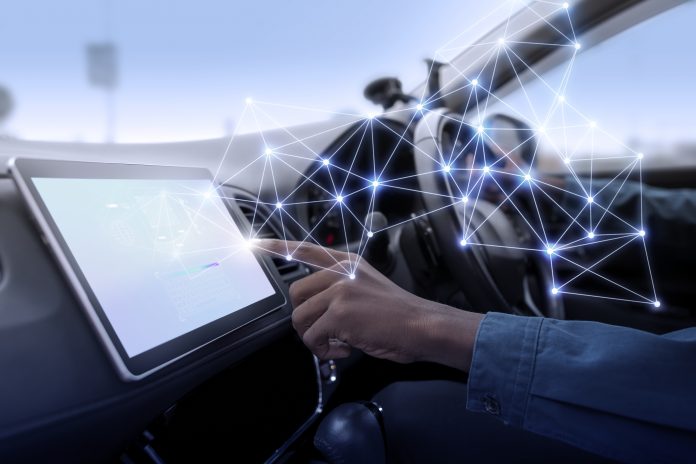“Transformation,” “disruption,” and “evolution” are likely words you’ve heard mentioned many times over the last few years regarding the automotive industry. From the lasting impact of the pandemic to an increase in new technologies, this industry will likely continue to see lasting changes.
Here are five trends that will likely continue to shift the way automotive stakeholders function over the next five years:
1. Alternative fuel
Alternative fueling options, particularly electric vehicles (EVs), will continue to impact the automotive industry in the near future significantly. Here are what the next five years may hold for emerging alternative fueling:
- Electric Vehicles – Global EV sales are slated to rise 33% by 2028, according to a global consulting firm, AlixPartners. In the United States, policy changes, like the declaration by the Biden Administration to have half of all new car vehicle sales be EVs by 2030, could continue to prop up demand stateside. However, EVs will likely only grow as high as their infrastructure. More charging stations and personnel like electrical engineers and software developers will be needed to facilitate this change.
- Autonomous Vehicles (AV) – The evolution of AVs over the next few years will likely depend on how safe they are perceived to be. According to McKinsey, 25% of drivers are interested in autonomous driving features. However, regarding factors that would raise adoption, 64% said that safety would have to increase, while 46% would want to test an autonomous vehicle themselves. AV systems could generate $300 to $400 billion in revenues for stakeholders, but promoting safety must become a focal point.
- Hydrogen – Demand for hydrogen over the years has increased, with the primary focus being on the passenger-vehicle side. However, the limiting factor to this alternative fueling option is fuel cell costs. There will also need to be a decrease in the price of transporting hydrogen. If those expenses can be diminished and a viable refueling infrastructure can be established, hydrogen could be right up there with EVs as a fueling option.
2. Automation
Automation will have manufacturer and consumer-focused impacts. For the former, automakers will likely take advantage of even more advanced use of AI and machine learning to streamline the automotive manufacturing process. This can also come in handy for affiliated dealers who may have the option to use AI bots to facilitate customer financing, car buyer interactions and even automatically schedule service department visits.
On the consumer-facing side, in addition to driving AVs, customers can enjoy more advanced customization opportunities, where car loans, insurance options, and even vehicle add-ons can be automatically tailored to their preferences and buying habits.
3. First-party data
First-party or customer data will remain crucial within the next five years. We could see some general focus on a greater need for robust security measures to protect consumer data and the type of data that dealers and automakers can obtain.
While dealers were only limited to things like general trends and buying habits, dealers could gain even more insight into consumer wants through the emergence of connected vehicles. More access to consumer driving patterns, car maintenance logs, and even how customers use infotainment systems can help dealers further tailor customer experiences and improve monetization strategies.
4. Connected vehicles
Consumers are interested in ensuring their cars have a high level of connectivity. According to McKinsey, almost 40% of consumers would change a car brand to gain more vehicle connectivity. This consumer preference sets up the connected car as something dealers can continue to dive into and use as a competitive advantage. By 2027, the connected car market is slated to rise to over $215 billion in revenue.
Not only will connected cars help promote things like safer driving and driving efficiencies that lead to a better environment, but they will also lead to greater revenue-generating opportunities for automakers and potential dealers.
Tracking remote vehicle diagnostics, intelligent online service scheduling, and predictive maintenance can help automakers and dealers offer better service to customers and create even more revenue. Dealers may also have a chance to further increase revenue generation through desirable subscriptions and over-the-air updates that benefit consumers.
5. Increasing digital retailing capabilities
The pandemic expanded the conversation of digital retailing and for dealers and automakers to understand the importance of having a seamless online automotive shopping process. This trend will likely continue into the next five years and beyond. Customers may expect more of a tailored car buying process with emphasized digital touchpoints. There may also be an expectation that all contact points be connected and work without hiccups.
While there’ll likely always be customers who want to meet in person, it’s essential that whatever happens online (whether chatbots, emails, or online car research) leads them to a conversion or next step smoothly. The online car buying experience will continue to become robust to where consumers will likely expect most components, including scheduling test drives, specifying add-ons, and even managing financing to happen online.
Final Thoughts
The next five years will likely be pivotal in the automotive industry. From seeing us move closer to a mandated increase in EVs to watching cars become even more connected, dealers will continue to navigate a transformational landscape. However, more evolution brings more opportunities to create competitive advantages and capture consumer attention.



